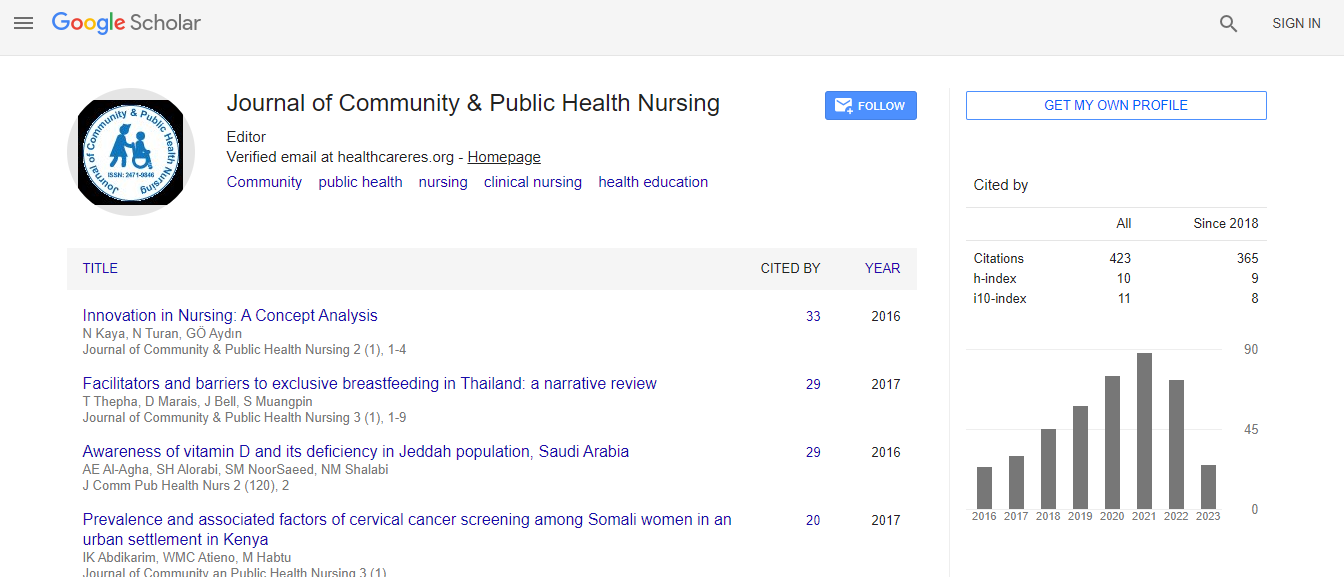Research Article
Autonomy and Control among Parents Who do not Comply with Recommended Pediatric Vaccinations: A Qualitative Case Study
Anat Amit Aharon*, Haim Nehama, Shmuel Rishpon and Orna Bron-EpelDepartment of Nursing, Tel Aviv University, Israel
- *Corresponding Author:
- Anat Amit Aharon, Ph.D
Lecturer, Department of Nursing
Tel Aviv University, Israel
Tel: +97 0532502951
E-mail: anatamit@post.tau.ac.il
Received date: December 19, 2016; Accepted date: December 28, 2016; Published date: January 04, 2017
Citation: Aharon AA, Nehama H, Rishpon S, Bron-Epel O (2017) Autonomy and Control among Parents Who do not Comply with Recommended Pediatric Vaccinations: A Qualitative Case Study. J Comm Pub Health Nurs 3:152. doi:10.4172/2471-9846.1000152
Copyright: © 2017 Aharon AA, et al. This is an open-access article distributed under the terms of the Creative Commons Attribution License, which permits unrestricted use, distribution, and reproduction in any medium, provided the original author and source are credited.
Abstract
Objective: To identify the main reasons why parents decided not to vaccinate their children according to the official recommendations.
Methods: A qualitative descriptive study approach was used, including 12 in-depth interviews with parents of two-year-old children who refused to vaccinate their children. Data were analyzed in three stages: open coding, mapping analysis and focused analysis.
Results: Five main themes emerged: Parents demand the right to make decisions regarding their child's vaccinations autonomously; they wish to take responsibility and be in control of their child's health; they perceive their actions (refusal) as characteristic of "good parenting"; they are critical of and distrust the medical establishment; and they base their decision on a calculation of the risks of the vaccines vs. the risk of the disease. Any combination of these factors may reflect the reasons for not complying with recommended pediatric vaccinations.
Conclusion: Parents' decisions whether, when and how to vaccinate cannot be ascribed to one single reason or cause; rather, it is a combination of interrelated factors. Understanding this complex phenomenon may help professionals plan interventions, to prevent a decline in vaccine coverage rates.

 Spanish
Spanish  Chinese
Chinese  Russian
Russian  German
German  French
French  Japanese
Japanese  Portuguese
Portuguese  Hindi
Hindi 
